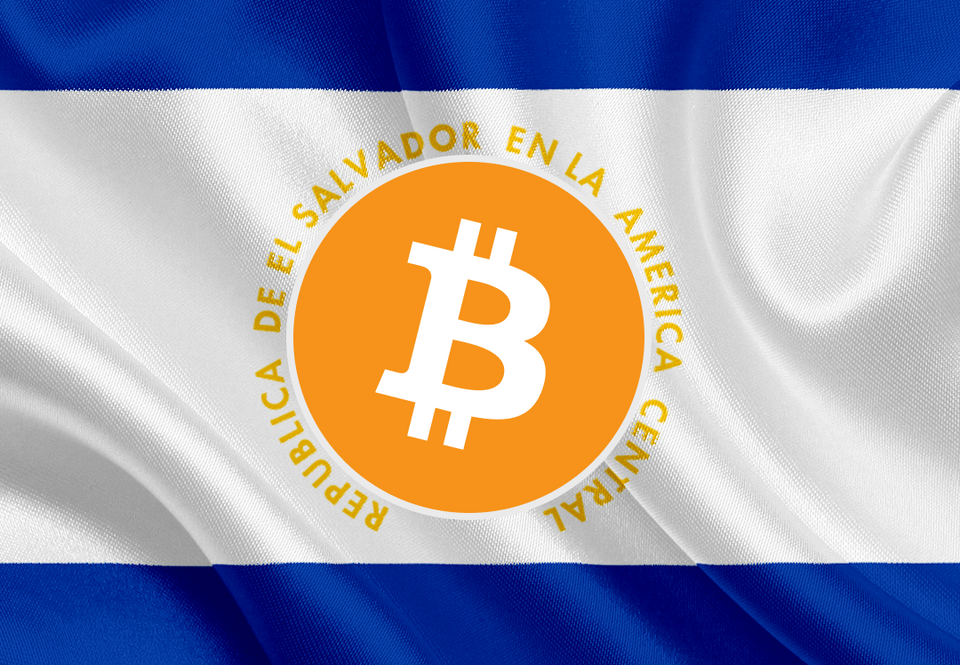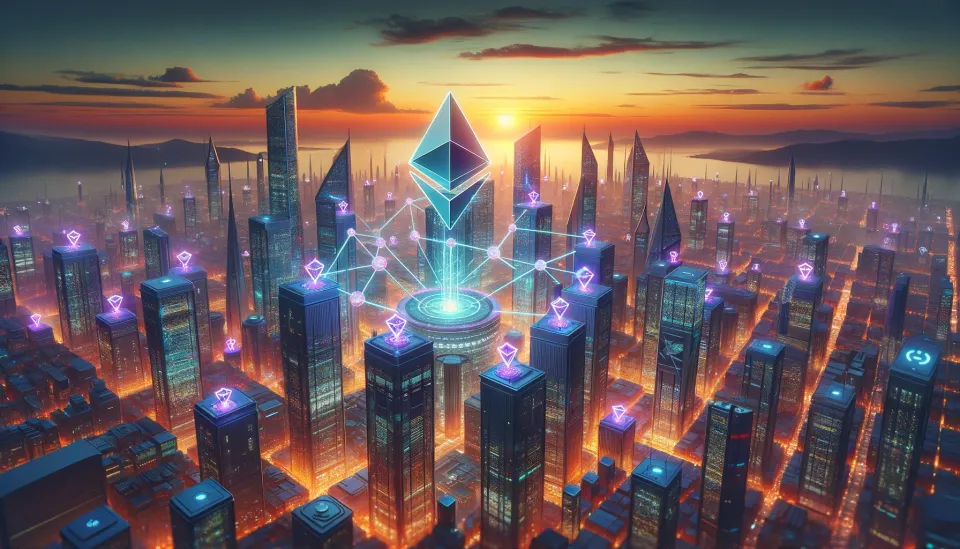Bitcoin adoption in El Salvador - why should you care?
So the big news in the crypto world is El Salvador adopting bitcoin as legal tender. This will create a few days of headlines, but it is part of a much larger story and much of the reporting misses some of the more interesting geopolitical implications of this move, particularly how this impacts US-China relations.
Bukele vs. Maduro
So the important thing about El Salvador is that you have President Nayib Bukele who is a Trump-like populist but who is economically competent. Basic economic competence is important because one thing that every populist leader needs is a gimmick. And populist leaders have no lack of bold and crazy ideas to make them look different. The problem is many populists have bold ideas but are unable to implement them. In addition, new ideas often come when the situation is so bad that you can't do anything.
This has been the problem with Venezuela's effort to use cryptocurrency. There you had a government that had managed an economy poorly and created an economic crisis, and they were interested in using cryptocurrency to resolve that crisis. However, their poor management of the economy also meant that they were unable to manage using new technology to fix the economy and because the crisis they were trying to resolve was so severe, simply trying to use cryptocurrency to monetize oil revenues was too little to help the economy.
El Salvador is in a very different situation than Venezuela, and it has an economy that is bad enough so that new ideas are needed, but not so bad as to create a crisis. The big problem that El Salvador has is that it has low GDP growth and high poverty. For a developing nation, it is growing steadily, but it is not an Asian "miracle economy" but very clearly wants to be one. So this creates the opportunity for a bold and new idea, such as making bitcoin a legal tender. To look at what El Salvador is trying to do, we should look first at its history.
EL Salvador and Cold War
During the cold war, Central America was the site of proxy civil wars between left-wing Soviet-backed parties and right-wing American-backed parties. With the end of the Cold War, both left and right parties laid down their weapons and went into civilian politics, and you had political stability with both left and right parties going into government until the 2010s. At that point, Trumpist populism and new political forces began reshaping Central American politics as it had the rest of the world.
El Salvador is unique in that in 2001, it abolished local currency, and financial transactions in El Salvador are now done completely with the US dollars. The dollarization of the economy was the result of neoliberal ideology which encouraged stable currencies, which it was believed would lead to more trade and create an economic miracle in El Salvador as it did with Asian economies. The dollarization of the Salvadoran economy again created the appetite for more economic experimentation. Dollarization has provided El Salvador with economic stability, but it has not led to a major takeoff of the economy. So El Salvador has been looking for something new.
And that new thing is China.
China ties
In 2018, El Salvador switched diplomatic recognition from Taipei to Beijing. El Salvador's links to Taiwan are historical. During the cold war, Taiwan had a right-wing anti-communist government, and naturally, it had alliances with right-wing anti-communist governments in Asia. These close links survived for a generation after the end of the Cold War but finally broke in 2018 when Mainland China offered El Salvador more economic incentives than Taiwan could.
In contrast to warming relations with China, the relationship between El Salvador and the United States has been frayed in the last decade. Under Trump, Central America was seen as simply a source of illegal immigrants and a nuisance. Things have not improved very much under Biden. Biden is far more interested in improving relations with Europe and India, and Central America is something that does not concern him. Moreover, anti-immigration is still quite popular in the United States, and Biden continues to maintain the Trump policy of viewing Latin America as a problem.
These recent events make it pretty clear that part of the motivation for El Salvador's embrace of bitcoin is to increase trade with other partners such as China, and making El Salvador a place where bitcoin is legal tender, makes it much easier for El Salvador to settle trade with China and to reduce dependence on the US dollar and an American-dominated global banking system. Furthermore, moving into bitcoin and crypto will make it easier for El Salvador to use the digital renminbi when it becomes available.
China in Central America
Interestingly, China has never really seen Central America as an area where it can expand its influence, and the reason for this is that previously China had been wary of undertaking initiatives that would irritate the United States. Under the Monroe Doctrine, the Western Hemisphere has always been considered to be America's backyard, and the US has always viewed other powers developing trade links with Central America to be a threat to national security.
Given this situation, China has traditionally kept a distance from Central America in order not to antagonize the United States. Indeed, China's interest in Africa was originally intended to *reduce* strategic conflict by focusing Chinese interest *away* from the Western hemisphere.
However, because it appears that the United States seems to view expanding Chinese influence anywhere as a challenge, China will likely find that it has no benefit by not developing greater economic ties with Central America, and El Salvador's embrace of bitcoin will make it easier for China to conduct a great volume of trade with Central America.
While El Salvador making bitcoin legal tender will cause only a few days of news, this is only one small part of a great geopolitical shift into a new crypto-based economy, and people that are buying and selling crypto are pioneers in this new world.
You might want to know
1) Bitcoin is legal tender in El Salvador so how will this change the crypto market?
Near term (1-3 years) changes in the wholesale market are quite unlikely. However, El Salvador will need an internal infrastructure to convert bitcoin to and from US dollars, so this will encourage the development of exchanges in El Salvador. This will also likely encourage technology, such as the lightning network, which allows for smaller transactions using bitcoin.
One issue with bitcoin is that most of the development has been at the exchange level, and regulation in the developed world has made it difficult to use bitcoin for retail transactions. One area which I would hope will happen in El Salvador is that people develop better tools for handling small transactions.
2) Why is El Salvador doing this?
The main reason is the desire for jobs and economic growth. While El Salvador is not facing an economic crisis, there is a desire for El Salvador to repeat the growth of Asian miracle economies. One thing that countries like El Salvador can try to do is to encourage technology firms to relocate there, and making bitcoin legal tender is a signal that the government of El Salvador is open to high technology and foreign investment.
El Salvador also has a large number of people working overseas, and bitcoin can be useful for remittances, and can help develop a financial infrastructure through defi and other crypto technologies.
3) Can adoption of Bitcoin solve El Salvador's problems?
Bitcoin is not a magic bullet, and will not single handedly change the Salvadoran economy. However, a government that is interested in trying new and original ideas in bitcoin is likely to be interested in doing new and different things in other areas of economic policy.
4) Is bitcoin really a currency now and will it be used like dollars?
One reason this will be an experiment is that it will be interesting to see how people deal with bitcoin volatility. The main issue with bitcoin being used in retail transactions is that the price fluctuates from moment to moment. So it will be interesting to see how El Salvador deals with this problem.
5) Why Latin America is such a fertile ground for this bitcoin boom?
Latin America is in a situation where it is not in a crisis, but the economic growth rates are not spectacular. One reason that people are interested in new economic ideas and economic solutions is that traditional economic ideas have gone as far as they can go, so people want new thinking.
6) Could El Salvador's bitcoin campaign take off across the rest of Latin America?
The difficulty that other nations have is that El Salvador already uses the US dollar for its local currency. If you have a country that already issues its own currency, then you have more room to do traditional things with the currency you are issuing before going to try something unusual.
This is an experiment. Some things will work, other things won't, but regardless of what happens we will learn new things so that other countries can decide what to do and what not to do.
This communication is intended as strictly informational, and nothing herein constitutes an offer or a recommendation to buy, sell, or retain any specific product, security or investment, or to utilise or refrain from utilising any particular service. The use of the products and services referred to herein may be subject to certain limitations in specific jurisdictions. This communication does not constitute and shall under no circumstances be deemed to constitute investment advice. This communication is not intended to constitute a public offering of securities within the meaning of any applicable legislation.





